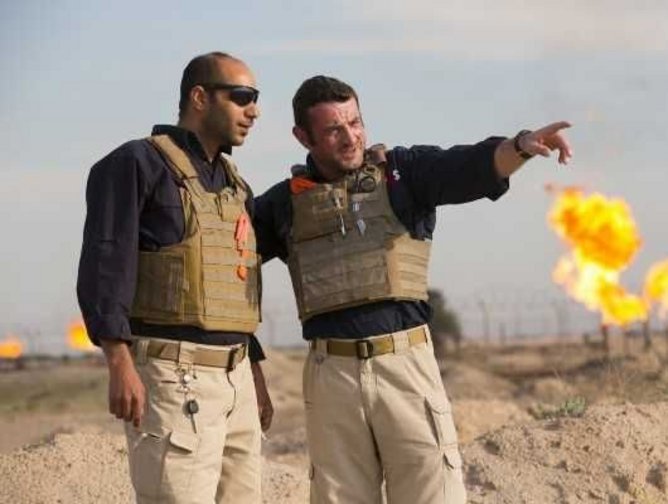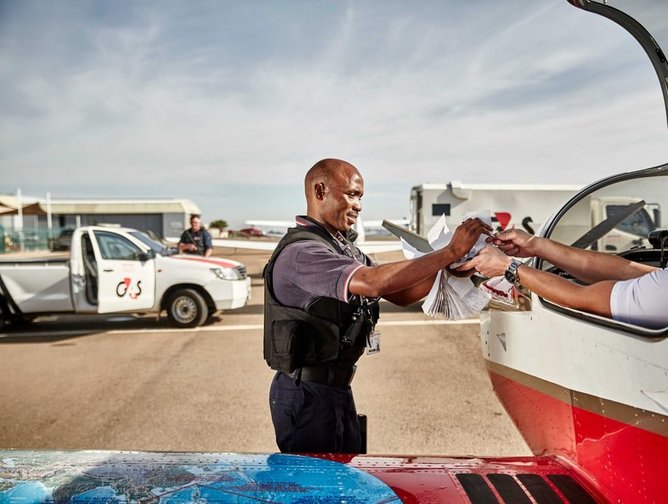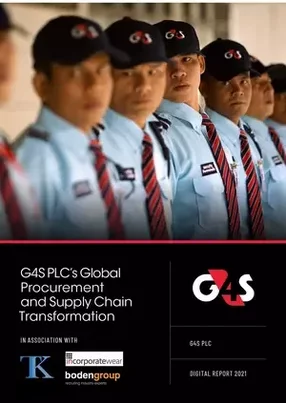The British firm G4S – known for being one of the world’s leading security services providers – recently found time for senior leader Robert Copeland to sit down with Supply Chain Digital to discuss the organisation’s experiences of a year plagued by the COVID-19 pandemic.
Robert Copeland is G4S’s Group Procurement & Supply Chain Director, and has over 20 years in Procurement and Supply Chain.
To start our discussion, we addressed the elephant in the room, COVID-19. The global virus has cast shade over almost every aspect of the supply chain process, and it only seemed fitting to ask Robert about its effect on G4S activity.
“COVID-19 has impacted all organisations, some for the better, and others sadly for the worse. However, G4S has been incredibly resilient during the Pandemic.
In several regions especially in the US, demand for G4S security services increased to ensure customer properties and facilities were fully protected during the pandemic. In the UK G4S has played an important part in supporting national efforts by successfully mobilising testing facilities across the country, including 18 regional, 92 local & 65 mobile sites, requiring G4S to rapidly recruit thousands of additional staff.
With all of these programmes around the world in addition to day-to-day activities, the Procurement function has been thoroughly challenged. The procurement team adapted and worked hard during the first few weeks of the crisis to source and expedite over 10 million items of PPE, helping keep over 500,000 employees and our customers safe.
We teamed up with the G4S subsidiary Hill & Associates Consultants Limited one of Asia’s leading provider of specialist risk mitigation to rapidly go on site in China to screen PPE manufacturers who had never supplied G4S before, giving us greater visibility of the product quality and business standards.
Beyond that, we had to ensure G4S supply chains were responsive and agile to adapt to customers’ requirements, which in some cases changed overnight.
In parallel, the procurement team led the development and implementation of infrastructure to enable the rapid recruitment of thousands of staff to run the Covid Test Centres across the UK, using the latest digital workforce management platform and recruitment partners such as HR Go. The cloud based workforce management platform gives G4S real-time visibility and reporting, ensuring the entire recruitment process is compliant, transparent, and controlled from end to end.
At the same time, the business was preparing for Brexit, the divestment of its conventional cash business in 40 countries and the mobilisation of new major contracts won in 2020, including a new 10-year contract to operate the UK’s first resettlement prison, HMP Five Wells in Wellingborough.
The pressure has been with us at every step; however, I am immensely proud of the way our teams around the world rose to every challenge.
Given the on-going refocusing at G4S in a competitive market place, Copeland talks about a major supply chain transformation programme to enable operational excellence and cost leadership.
When I visited the G4S Procurement teams around the world, I spent time with the operational teams to get a direct understanding of how the businesses operated. I noticed the work-wear supply chains were highly decentralised and often suffering from range proliferation (i.e. 60 variants of white shirts used in just 6 European countries) and large amounts of stock obsolescence cluttering up storage areas.)
Work-wear is a major spend area for G4S with an annual spend of $50M supporting over 500,000 employees. Anyone who has been involved in the transformation of corporate work-wear will attest to the fact that it is deceptively complex.
Work-wear is also an emotional subject and understandably so. The saying goes, ‘if you dress well, you feel well’ and this meant that any changes were scrutinised and challenged by many, from works councils to Managing Directors. The business was interested in improving how they managed work-wear and reducing costs, but the countries often lacked the capability to implement sustainable change.
The competing dynamics of works councils, customer standards, staff churn, uniform customisations, bulk manufacturing lead times, mobilisation of new business (typically 30-day go-live from contract signature), seasonality, special events, quality and cost vs. garment design life, create a rather complex algorithm when blended together.
Since 1996 G4S has owned a garment manufacturer in India called IBG, which currently supplies 15% of G4S’s uniforms globally. IBG had a difficult relationship with G4S as an in-house supplier. Each local country operation demands a high touch and responsive distribution service, and frankly, the demands are often unreasonable but this is driven by the needs of our customers. Whilst IBG was renowned for the quality of its products, it simply could not compete on service with strong local distributors (200 suppliers in Europe alone). This truly had become an existential threat to IBG and so the opportunity for the procurement team to help IBG pivot it’s business model and to focus on its core strengths was timely.
G4S, like many companies, over time can find itself becoming overly reliant on and beholden to suppliers where the knowledge sits firmly with the supplier base. It can be a real struggle to get hold of robust management information, performance KPIs, accurate stock liabilities, and in the case of work-wear a clear understanding of the specifications and cost per wearer. Past attempts made by local business units had limited success. This presented a great opportunity for the Group Procurement team to showcase its ability to re-imagine the way the business thought about work-wear.
As we developed the operating model, we identified 3PL as an option and one that had the potential to solve many of our problems. We evaluated the merits of both a fully outsourced 3PL solution alongside maintaining a direct relationship with a panel of manufacturers/distributors. What we found during the detailed evaluation was that for a tight margin business such as G4S, a direct relationship with a uniform distributor, in terms of technical and service support along with a TCO price, outweighed the benefits of a 3PL solution.
In a lean business like G4S, our stakeholders are won over by delivery - conversely, reputations can quickly be tarnished if change outcomes fall short of promises made, so a robust operating model was critical to withstand the operational pressures and demands exerted through the lifecycle of managing customer expectations.
Given that work-wear covers six continents, it was important to divide this programme into manageable phases, with the first phase being the UK & Europe in 2018. The first element was to develop the right operating model, which critically would allow G4S to retain control, scale the solution and leverage volumes with flexibility for any local and national requirements.
The solution had to conquer key issues including the build-up of obsolescence stock, wearer level management (including start and end of life), zero based budgeting, cost per user tracking, garment performance in the field tracking, order vs user requirements, working capital optimisation and inventory management.
To ensure the new operating model met stringent business ethics, we collaborated with EcoVadis to independently audit our work-wear supply lines for modern slavery risks and ethical standards.
We also partnered with a boutique Dutch software house, EC Manage, which developed a digital work-wear management system for distributors, able to give wearer level allocations and controls, the trick being to create flexibility without excessive working capital. Customer contracts often require G4S to mobilise a workforce numbering in the 1000s with 30 days’ notice.
The Procurement team ran several complex prequalification tenders and e-auctions during 2018 to ensure the best partners were selected to deliver the right economic and operational blend. We appointed the well-respected UK based workwear distributor Incorporatewear Ltd, to supply the six largest European countries, consolidating over 200 suppliers into one contractual relationship.
The project team had to undertake a major user trial phase as agreed with the European Works Councils to ensure that the optimised range was exactly right, often with very positive feedback from the users, in parallel to the trials the supply chain had to be fully Brexit proofed, able to operate in all possible Brexit outcomes.
The output of the programme in Europe delivered overall cost efficiencies of 20%-25% (40% in some countries), and a range rationalisation of around 60% across Europe. This enabled G4S to reinvest some of the savings in targeted areas to improve the look and feel of the uniforms and the morale of our people.
Work-wear transformation has been a challenging project, one that has seen us navigate through some interesting moments (including Brexit), but it has also demonstrated the value of a truly capable and trusted procurement function, able to provide leadership and commercial credibility.”



- The Procurement News Digest: Suppliers, RLM, SMCC, Tech, G4SProcurement Strategy
- LeasePlan driving success on G4S sustainable fleet plansSustainable Sourcing
- LeasePlan driving success on G4S sustainable fleet plansSustainable Sourcing
- G4S driving towards net zero across its UK vehicle fleet

